#Gonville & Caius
Explore tagged Tumblr posts
Text

Coast of Arms, Gonville and Caius College, Cambridge, 2010.
The complicated coat of arms is a consequence of two foundings and thus the compound name of the college. I have yet to find an adequate explanation of the scallop shells. If the college were in Spain, the answer would be simple, connections to Santiago, the saint and the pilgrimage.
#colleges and universities#coat of arms#gonville and caius college#cambridge#england#united kingdom#2010#photographers on tumblr
18 notes
·
View notes
Text

5 notes
·
View notes
Text
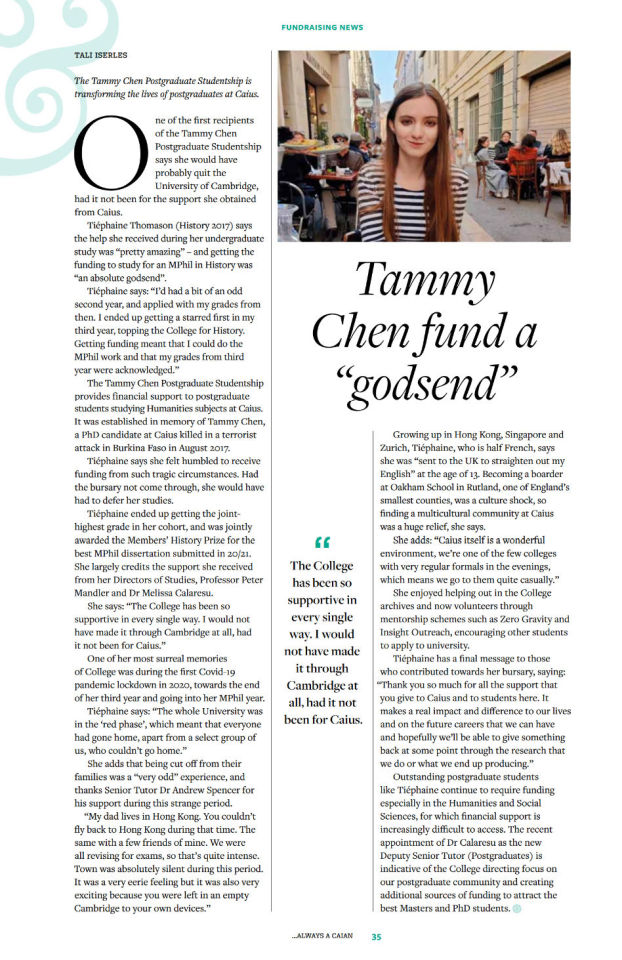
‘Tammy Chen Fund a “Godsend”’
—
The Tammy Chen Postgraduate Studentship is transforming the lives of postgraduates at Caius.
—
One of the first recipients of the Tammy Chen Postgraduate Studentship says she would have probably quit the University of Cambridge, had it not been for the support she obtained from Caius.
Tiéphaine Thomason (History 2017) says the help she received during her undergraduate study at Gonville & Caius College was “pretty amazing” — and getting the funding to study for an MPhil in Early Modern History was “an absolute godsend”. Tiéphaine said: “I’d had a bit of an odd second year, and applied with my grades from then. I ended up getting a starred first in my third year, topping the College for History. Getting funding meant that I could do the MPhil work and that my grades from third year were acknowledged.”
The Tammy Chen Postgraduate Studentship provides financial support to postgraduate students studying Humanities subjects at Caius. It was established in memory of Tammy Chen, a PhD candidate at Caius killed in a terrorist attack in Burkina Faso in August 2017. Tiéphaine says she felt humbled to receive funding from such tragic circumstances. Had the bursary not come through, she would have had to defer her studies.
Tiéphaine ended up getting the joint-highest MPhil grade in her cohort, and was jointly awarded the Members' History Prize for the best MPhil dissertation in Early Modern History submitted in 2020/21. She largely credited the support she received from the College, particularly her Directors of Studies Prof Peter Mandler and Dr Melissa Calaresu. She says: “The College has been so supportive in every single way. I would not have made it through Cambridge at all, had it not been for Caius.”
—
“The College has been so supportive in every single way. I would not have made it through Cambridge at all, had it not been for Caius.”
—
One of her most surreal memories of College was during the first Covid-19 pandemic lockdown in 2020, towards the end of her third year and going into her MPhil year. Tiéphaine says: “The whole University was in the ‘red phase’, which meant that everyone had gone home, apart from a select group of us, who couldn’t go home.”
She adds that being cut off from their families was a “very odd” experience, and thanked Senior Tutor Dr Andrew Spencer for his support during this strange period. Tiéphaine says: “In my case, my dad lives in Hong Kong. You couldn’t fly back to Hong Kong during that time. The same with a few friends of mine. We were all revising for exams, so that’s quite intense. Town was absolutely silent during this period. It was a very eerie feeling but it was also very exciting because you were left in an empty Cambridge to your own devices.” The students relaxed by having sing-a-longs to Simon & Garfunkel songs in the evenings and cooking international meals from their home countries, using the limited ingredients available at the time.
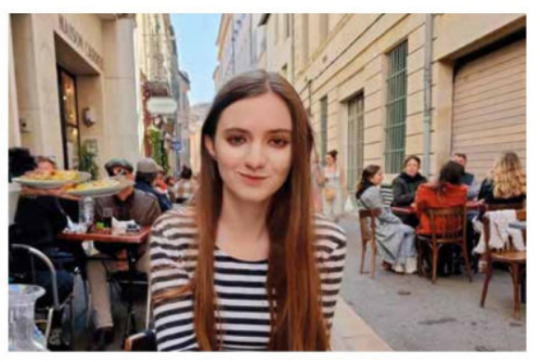
Growing up in Hong King, Singapore and Zurich, Tiéphaine, who is half-French, half-English, said she was “sent to the UK to straighten out my English” at the age of thirteen, having previously studied in French. Becoming a boarder at Oakham School in Rutland, one of England’s smallest counties, was a culture shock, so finding a multicultural community at Caius was a big relief, she says. She adds: “Caius itself is a wonderful environment, we’re one of the few colleges with very regular formals in the evenings, which means we go to them quite casually. When you go to formals at other colleges, people are always dressed in a very fancy way, whereas at Caius we’re all desperately trying not to get tomato soup on our gowns.”
She also enjoyed helping out in the College Archives and now volunteers through mentorship schemes such as Zero Gravity and Insight Outreach, encouraging other students to apply to university.
Tiéphaine has a final message to those who contributed towards her bursary, saying: “Thank you so much for all the support that you give to Caius and to students here. It makes a real impact and difference to our lives and on the future careers that we can have and hopefully we’ll be able to give something back at some point through the research that we do or what we end up producing.”
Tiéphaine recently discovered that she has been successful in receiving full funding from the Harding Distinguished Postgraduate Scholarships Programme to study for a PhD in Early Modern History at the University of Cambridge, based at Murray Edwards College, from 2022/23. There, she will be looking at the spread of spoken French across the early modern Francophone Atlantic. While the College is sorry to see Tiéphaine leave, we know she will stay in touch with the fellows and students at Caius.
Outstanding students like Tiéphaine continue to require funding, especially in the Humanities and Social Sciences, for which financial support is increasingly difficult to access. The appointment of Dr Calaresu as the new Deputy Senior Tutor for Postgraduates is indicative of the College directing focus on our postgraduate community and creating additional sources of funding to attract the best postgraduate students.
—
written up by Tali Iserles | ‘Once a Caian’, Issue 22, p. 355 (15 November 2022) | ‘Caius News’ (22 May 2022)
#‘Once a Caian’#‘...Always a Caian’#Issue 22#Tammy Chen Fund#Tammy Chen Postgraduate Studentships#Humanities Postgraduate Studentships#History Postgraduate Studentships#Gonville & Caius College#Caius College#Cambridge#Oakham School#Oakham#Tiéphaine Thomason#Tiephaine Thomason#BA in History#MPhil in Early Modern History#Members History Prize
0 notes
Text
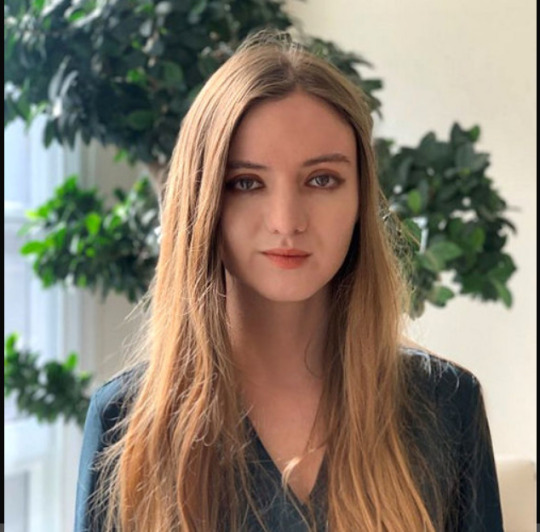
Link: I... [expand] Alt Text: An image of a person, appearing to be a young woman, with light skin, light brown eyes, and long, fine, light brown hair in a dark shirt in front of a white office background. The person has been publicly listed as an associate by the name of "Tiéphaine Thomason" at the firm "Bohill Partners" in "2021" and "2022."
Bohill Partners describes itself as "a specialist executive search firm, providing retained search and advisory services. It delivers an outstanding service to clients and candidates alike, facilitated by its deep sector knowledge, extensive global network and refined search process."
According to Bohill Partners, "Tiéphaine Thomason joined in 2021 as an Associate. Raised across Hong Kong, Singapore and Zürich, Tiéphaine is a native French and English speaker, with additional skills in German and Spanish. Prior to joining Bohill Partners, Tiéphaine studied at the University of Cambridge, where she graduated from Gonville & Caius College with a BA Hons in History, specialising in Political Thought, before undertaking an MPhil in Early Modern History. Throughout her studies, Tiéphaine was heavily involved in several student consulting groups and her college’s history society."
#recruitment#real assets#executive search#bohill#bohill partners#bohill associates#policy#advisory#investment#managment#economics#politics#political#legal#law#recruiter#associate#intern#contact#cambridge#gonville and caius college#gonville & caius college#history#history society#political society#consultancy#tiéphaine thomason#tiephaine thomason
1 note
·
View note
Text
This post is SPITTING FACTS about what titles KC can remove from Harry. FACT: KC can strip Harry of Prince and HRH. This is not a youtube opinion but the informed opinion of a highly credentialed professor emeritus of public law by u/Positive-Vibes-2-All
This post is SPITTING FACTS about what titles KC can remove from Harry. FACT: KC can strip Harry of Prince and HRH. This is not a youtube opinion but the informed opinion of a highly credentialed professor emeritus of public law I had it up to my wazoo reading and hearing conflicting opinions of what KC is able to do regarding titles so I went searching for a rock solid answer."Master Graham Zellick is a Senior Master of the Bench and former Reader, is emeritus professor of public law and former Principal of Queen Mary & Westfield College, sometime Vice-Chancellor of the University of London, a former editor of Public Law, and was Chairman of the Criminal Cases Review Commission, President of the Valuation Tribunal for England and a member of the Investigatory Powers Tribunal. He is an Honorary Fellow of Gonville & Caius College, Cambridge and of the Society for Advanced Legal Studies."In no uncertain terms, Zellick states that KC can remove HRH and Prince"....The title of Prince is likewise in the gift of the Monarch. As with ‘HRH’, it is usually acquired by coming within a class or category stipulated in letters patent, but it can also be done individually.....There is no reason why the Sovereign cannot remove these titles, a decision which again could not be challenged in the courts, since the royal prerogative in relation to honours and titles is said to be unreviewable or ‘non-justiciable’. The exercise of prerogative powers is in principle subject to supervision by the courts in the same way that statutory powers are – as Boris Johnson discovered in 2019 when his attempt to prorogue Parliament was annulled by the Supreme Court – but powers exercised by the Monarch personally otherwise than on ministerial advice or in relation to honours fall into the non-justiciable category. "imho It would be more fitting and send a stronger message and cut deeper to strip the title Prince then stripping Harry of his Dukedom which as Zellick explains at the link would need to be done by parliament. Harry is the one who should bear the brunt of responsibility, he has been the traitor to his family, he is just as responsible as Markle for employing scum like Boozy and other sugars to name just two instances of his treachery.https://ift.tt/36MDgNh'. post link: https://ift.tt/zNryWkq author: Positive-Vibes-2-All submitted: August 18, 2024 at 10:23PM via SaintMeghanMarkle on Reddit disclaimer: all views + opinions expressed by the author of this post, as well as any comments and reblogs, are solely the author's own; they do not necessarily reflect the views of the administrator of this Tumblr blog. For entertainment only.
#SaintMeghanMarkle#harry and meghan#meghan markle#prince harry#fucking grifters#grifters gonna grift#Worldwide Privacy Tour#Instagram loving bitch wife#duchess of delinquency#walmart wallis#markled#archewell#archewell foundation#megxit#duke and duchess of sussex#duke of sussex#duchess of sussex#doria ragland#rent a royal#sentebale#clevr blends#lemonada media#archetypes with meghan#invictus#invictus games#Sussex#WAAAGH#american riviera orchard#Positive-Vibes-2-All
12 notes
·
View notes
Text

a little update!
Its been a while since I’ve spoken on here, so here’s some things I’ve done since I’ve last posted 🫶
• completed my gold DofE 🌟
such a big achievement for me. all volunteering, skill learning and my expedition done! here’s some photos of my week away on the river 😋



it was so stunning but defo a lot of hard work, between the rowing and the weather, but I was with all the right people which just made it so much better! with my DofE also comes the physical skill, and I’ve managed to absolutely smash my personal best with 7.2k in an hour!

very proud, and I know it’s not perfect but I’ve come a long way and I’m going even further ⭐️ I’m planning to smash forward and sign up for a half marathon in the coming years and I’ve truthfully found love and peace in running!
• published an article 📖
I published a medical article in a magazine! it took a lot of time going back and forth between editing and submitting, then receiving feedback and submitting more drafts. But I did it! I’m so proud of myself and I know I’ve got so much more ahead of me!
• accepted to study (temporarily) with Cambridge 🎓
I haven’t been accepted into Cambridge (yet 🤞), but I applied for multiple of their extra courses (Apply Cambridge, Gonville & Caius Reading groups, CIMR reading research) and have been accepted into all of them!! I’m incredibly grateful to have all of these opportunities and I will take on and learn for my future. thank you again cambridge!!! 😍
• Work experience and volunteering 💕
When I last updated this studyblr, I was really struggling to find some clinical work experience and volunteering placements, but I’ve now got some experience in a GP and some in a hospital nearby planned for later this year. A nearby care home has also offered to take me on for a few hours a week and again I have never been more grateful for this. I might not have been locked in before but I 100% am now!!! 🙏
and again, thank you so much for all the support I’ve received on tumblr so far. thank you all so much for everything you’ve all done for me!
#girlhood#study#cute#study aesthetic#cambridge#maths#oxford#a levels#studyinspo#kokopops#dark academia#dark aesthetic#chaotic academia#light academia#self love#study blog#studyspo#sucess story#studying#cambridge updates#medicine
13 notes
·
View notes
Text

An honorary Doctorate in Letters will be conferred upon the actor Sir Simon Russell Beale. Renowned for his stage, film and television roles, Sir Simon is an Honorary Fellow of Gonville and Caius College, where he studied for his undergraduate degree. He is the recipient of two BAFTA awards, three Laurence Olivier Awards and a Tony. He was knighted in 2019.
2 notes
·
View notes
Text
University Challenge Time Machine
Exeter vs Bristol

In 2015 I watched the movie Spy when it came out in the cinema. I remember laughing my head off, particularly at Jason Statham’s character, who spends the whole film reciting an increasingly bizarre and over-the-top series of unlikely things he has done, such as having an arm torn completely off and then reattaching said arm with his other, still attached, arm.

Is it just a sign that my tastes have changed over the past eight years. That I have changed as a person. This is probably more likely than the humour of the movie itself somehow degrading over time, although that does happen in some cases.
People change, but we usually change so slowly that we don’t really notice. Instead, we only realise when we do something like watch a film we last watched eight years ago and find that it doesn’t make us laugh as much as it used to.
Sometimes, though, we have a record of how we have changed. People keep journals, documenting every day of their lives, and they can go back and read about their past selves, seeing how different they have become, how different they used to be.
A Sales Pitch
I don’t have such a comprehensive record of my life, but I do have eight years’ worth of University Challenge reviews. And for the first time, I have combined the full history of this blog into one single eBook.
Enter the University Challenge Time Machine, a compilation of all the Grand Finals I have reviewed since starting this blog — including two which were previously available only on Patreon (ooh, how exciting!).
As a bonus, there is also my review of the Monkman vs Seagull episode which was the first semi-final in 2016/17.
This book covers an interesting period in the history of University Challenge, as the show became ever more popular on Social Media, and as the quizzing sub-culture grew in the real world. Quizzy Mondays, with UC as the headliner following Mastermind and Only Connect, has snowballed into a bonafide cultural phenomenon.
University Challenge Time Machine: Grand Finals, 2014-2024 eBook : Kilvington, Jez: Amazon.co.uk… University Challenge Time Machine: Grand Finals, 2014-2024 eBook : Kilvington, Jez: Amazon.co.uk: Booksamzn.eu
In 2014, Paxman was at the peak of his powers, and the first chapter of this book details one of the greatest University Challenge finals ever, starring Ted Loveday. The decade continues, with plenty more interesting characters like the aforementioned Eric Monkman and Bobby Seagull.
We see the rise of a dynasty and the first series featuring a new host, as Amol Rajan took over from Paxman in 2023. There are also a few more bonus episodes from my Patreon — a Tabloids vs Broadsheets special from 1999 which features former Prime Minister Boris Johnson. And an episode from 1987 hosted by Bamber Gascoigne.
Plus, there are also some tasty statistics at the end, for those of you who relish numbers!
You can buy it here! It makes the perfect gift for the quiz lover in your life, and you can take a trip down memory lane over the Christmas period.
If you enjoy it please leave a review as that will help me out greatly. Thanks!

Bristol romped to victory with the highest score of the first round, 325 in a thrashing of Gonville and Caius (who feature in the first chapter of Time Machine, if I’m permitted to continue plugging).
Exeter also racked up an impressive 240 in their opening win, and Rajan singles out Mouelhi, whose four consecutive starters to kick things off set them on their way that evening.
Steamrolling
He is unable to replicate that success on this occasion, as Bristol skipper Flanagan takes the first starter with fauvism. They eased to a hat trick on medical terms, then Flanagan takes another with a guess of harlequin, for a species of duck.
Carr buzzes early for Exeter with Slovenia but loses five points, and Warner is able to steal with Slovakia. Unfortunate, and a sign of things to come for Exeter. Perhaps if they’d got this one right things may have been different.
Warner laughs his head off at a question about laminas, but he gets it right and gets the other two bonuses as well. He also picks up the picture starter in a similar manner to his Slovakia/Slovenia answer a moment earlier. Moorcroft buzzes with Jing, recognising Beijing on a map, but Warner takes the points with Bei. Another sliding doors moment. Their last for a while, though.
The University Challenge Review Subscribe for weekly reviews of University Challenge, an irreverent take on Britain's quirkiest quiz showwww.quizposting.com
Mouelhi drops another five points on a shipping forecast starter with Dogger Bank, and Flanagan picks up ten with Viking. The scores are now 110 to minus 10, and things only get worse for Exeter as Watts takes her first starter with Diels-Alder.
Warner wins a bonus set on places beginning with D-U-R, and acts as though he doesn’t know the second of these is , saying ‘is that a place, I looked at a map the other day’. He doesn’t want to come across as a know-it-all, but he should be more confident of himself, because there are a few occasions in the episode where his lack of self-assurance nearly puts Flanagan off from taking his answers.
No one recognises Janelle Monae on the music starter. Flanagan wins the bonuses with Quasar on the replacement, and Bristol reach 200 points with a hat trick.
Finally, Exeter manage to take a starter, with Newman’s mezzo-soprano bringing them back to zero points. Dendrite puts them on positive five points for the first time in the match.
One of their other bonuses was on transcendental numbers, and the following starter is on the same subject. This goes to Moorcroft, giving Exeter two in a row, and some real momentum as they try and avoid the ignominy of an all-time low score.
Warner and Flanagan trade starters, bringing Bristol close to 300 before Carr gets in on the act for Exeter with Balthazar, raising them to 35 points and knocking them off the podium of the lowest scores in the BBC era.
Exeter 35–290 Bristol
A ruthless performance from Bristol, who look like the team to beat heading into the quarter-finals. Had Exeter got a starter at the beginning of the match they may have been able to get nearer to a hundred points, but Warner and Flanagan were on such excellent buzzer form that they would likely have lost by a significant margin anyway.
That’s all from me until the New Year, as I won’t be reviewing the episodes of the Christmas series. So if you’re craving UC Review content over the holiday period you know what to do… (I’ll tell you anyway — buy my book)
University Challenge Time Machine: Grand Finals, 2014-2024 eBook : Kilvington, Jez: Amazon.co.uk… University Challenge Time Machine: Grand Finals, 2014-2024 eBook : Kilvington, Jez: Amazon.co.uk: Booksamzn.eu
You can also buy compilations of several of the earlier series I have reviewed. All here.
3 notes
·
View notes
Text
10: Avril 2024 / dessin d’observation (paysage) - premier dessin à l’aquarelle d’un paysage, Gonville et Caius Collège, Cambridge (1h)

1 note
·
View note
Text






some of my favourite lino prints of Gonville & Caius college, where I used to work, and Kings College in Cambridge.
0 notes
Text

Gonville & Caius College, Cambridge, U.K. [OC] https://ift.tt/fnqW9wP https://ift.tt/fnqW9wP Submitted November 14, 2024 at 03:27PM by ProfessorFoglio https://ift.tt/w3HZd7k via /r/ArchitecturePorn
1 note
·
View note
Text
Jeremy Taylor (1613–1667)
13 de agosto – Memória de Jeremy Taylor, Bispo, poeta e escritor Jeremy Taylor nasceu em Cambridge em 1613 e lá permaneceu até completar os estudos no Gonville & Caius College, sendo ordenado ao sacerdócio na Igreja Anglicana em 1633 e eleito membro da faculdade. À época, chamou a atenção do famoso Arcebispo Laud, que o indicou para uma bolsa de estudos no All Souls College e futuramente o…

View On WordPress
0 notes
Text
Jimmy Carr Net Worth
Jimmy Carr, the Irish-born comedian with a razor-sharp wit and penchant for dark humor, has carved a unique path in the world of entertainment. From his deadpan delivery to his thought-provoking jokes, Carr has built a career that spans stand-up comedy, television hosting, and writing. But beyond the laughter and accolades, lies a natural curiosity: how much is Jimmy Carr's net worth?
Estimating the net worth of any celebrity is inherently challenging, and Carr is no exception. Various sources offer differing figures, ranging from £12 million to £25 million (approximately $15 million to $31 million USD). This disparity stems from the multifaceted nature of his career, encompassing diverse income streams that are not always publicly disclosed.
Early Life and Career Beginnings:
Born James Anthony Patrick Carr in Limerick, Ireland, in September 1972, Carr's journey to comedic success wasn't exactly conventional. After graduating from Gonville and Caius College, Cambridge, with a degree in marketing, he embarked on a corporate career, working at Shell and Ernst & Young. However, the allure of comedy proved too strong. In 1997, he took the plunge into stand-up, starting out in open mic nights and comedy clubs.
Rise to Prominence:
Carr's unique style, characterized by dark jokes and a signature laugh, quickly set him apart. By the early 2000s, he was a rising star, performing around the globe and racking up awards, including the British Comedy Award for Best Stand-up Comedian in 2006.
Television Success:
Beyond stand-up, Carr established himself as a popular television personality. He began hosting shows like "8 Out of 10 Cats" and "The Big Fat Quiz of the Year", captivating audiences with his quick wit and sharp comedic timing. These shows not only garnered high ratings but also contributed significantly to his public profile and potential earnings.
Other Ventures:
Carr's career extends beyond stand-up and television. He has authored several best-selling books, including "The Naked Joke", and co-founded the production company "2nd Productions". These ventures further diversify his income streams and contribute to his overall net worth.
Maintaining Privacy:
Unlike many celebrities who openly discuss their finances, Carr maintains a certain air of mystery about his wealth. He rarely speaks publicly about his earnings, making it difficult to pinpoint an exact figure.
Focus on the Work:
While the specific details of his net worth remain elusive, one thing is clear: Jimmy Carr's primary focus lies in his craft. He continues to tour extensively, write new material, and explore different comedic avenues. His dedication to his work and his ability to consistently entertain audiences are the cornerstones of his enduring success.
Conclusion:
Jimmy Carr's career trajectory is a testament to his talent, hard work, and ability to connect with audiences. While his exact net worth remains an estimate, his impact on the world of comedy is undeniable. He continues to push boundaries, challenge perceptions, and leave audiences in stitches, solidifying his place as one of the most successful and influential comedians of his generation.
0 notes
Text
6TH August in the Medical History
Pioneering Work by William Hyde Wollaston in Chemistry and Medical Science

I. Introduction
Eminent English chemist William Hyde Wollaston (1766–1828) made ground-breaking discoveries and developments that had a profound impact on both chemistry and medicine. His lifetime of work, which spanned the late 18th and early 19th centuries, created the groundwork for contemporary metallurgy, spectroscopy, and crystallography. Palladium and rhodium’s groundbreaking isolation by Wollaston changed catalysis and medical applications. Additionally, he improved scientific illustration and microscopy through the creation of the Reflecting Goniometer and the Camera Lucida, which had an impact on medical imaging methods. This article explores Wollaston’s varied contributions and demonstrates his crucial influence on the fields of chemistry and medical science.
II. Early Life and Education
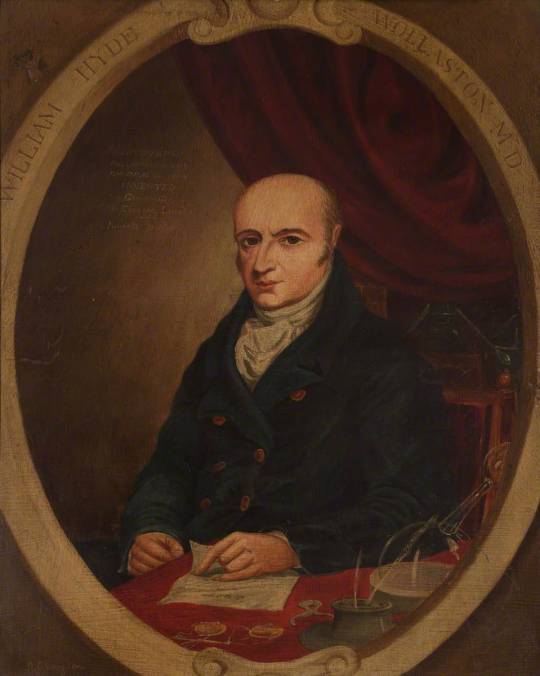
William Hyde Wollaston, born August 6, 1766, in East Dereham, England, showed an early aptitude for science. He studied medicine at Cambridge’s Gonville and Caius College but gravitated toward chemistry and natural sciences under the guidance of mentor John Gough. Although he didn’t complete his medical degree, his formative years at Cambridge nurtured his analytical skills and curiosity. His subsequent significant contributions to chemistry and medicine were built on the foundation of these early experiences.
III. Contributions to Chemistry

William Hyde Wollaston made significant and enduring contributions to the discipline of chemistry that will always be remembered in the history of science. His creation of the Reflecting Goniometer, a ground-breaking tool that revolutionized crystallography, is among his most famous accomplishments. This tool made it possible to measure crystal angles precisely, which advanced our understanding of mineral structures and molecular groupings. The Reflecting Goniometer completely changed the field by giving scientists an effective tool to decipher the properties of crystalline materials.
In 1803 and 1804, respectively, Wollaston made the extraordinary discoveries of two new elements: palladium and rhodium. He was able to successfully extract these components from platinum ore because to his painstaking procedures and creative approaches. The periodic table was widened by these discoveries. PAlloy and rhodium were used in a variety of chemical processes that were important for the development of pharmaceuticals and other industries, as well as catalytic converters that reduce the environmental impact of automotive emissions.
Wollaston’s creation of the Camera Lucida further displayed his skill in interdisciplinary research by uniting art and science. By enabling researchers to trace tiny specimens, this tool aided in the documentation and dissemination of scientific discoveries and allowed for correct scientific depiction. Modern microscopy and imaging methods owe their development largely to Wollaston’s contributions. Overall, William Hyde Wollaston’s inventiveness and intellectual prowess continue to motivate researchers and influence chemistry and other sciences.
IV. Medical Applications
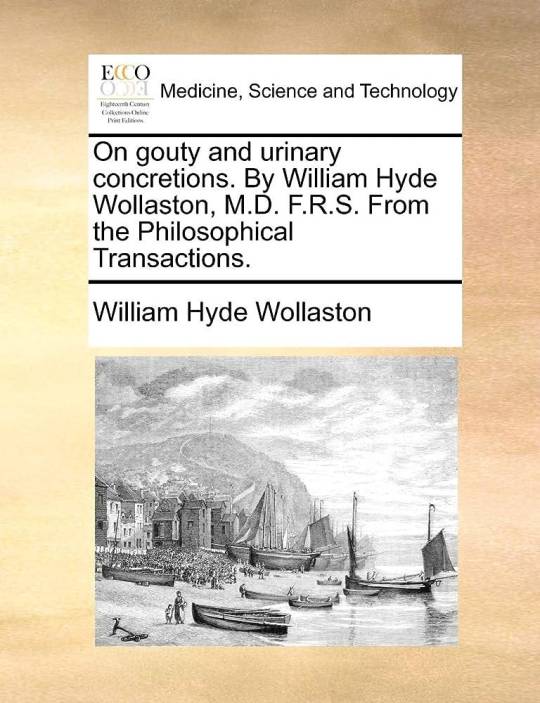
Medical uses for Wollaston’s contributions to chemistry, such as the isolation of palladium and rhodium, can be found in prosthetics, dental materials, and cutting-edge spectroscopy-based diagnostics.
V. Legacy and Recognition

His groundbreaking contributions to chemistry and medicine, which influenced modern scientific understanding, are what will live on as Wollaston’s lasting legacy. His contributions to crystallography, palladium, and rhodium continue to have an impact on medical technology, catalysis, and materials science. His innovations of the Camera Lucida and the Reflecting Goniometer enhanced scientific illustration and microscopy, having an impact on many fields. Wollaston’s discoveries provided the groundwork for significant medical improvements, and his thorough research methodology continues to serve as a standard for scientific investigation. His accomplishments include participation in esteemed organizations and long-lasting awards, which have solidified his place as a trailblazing figure in the annals of scientific history.
VI. Conclusion

In conclusion, William Hyde Wollaston made significant contributions to chemistry and medicine that will always be remembered in the history of science. His inventiveness, demonstrated by discoveries like palladium and the Reflecting Goniometer, has sped up the development of materials, medical equipment, and catalysis. As we look to the future, contemporary technologies that build on Wollaston’s legacy include QMe Healthcare System Software, which improves medical diagnostics, patient care, and research. Scientists are still motivated by Wollaston’s legacy, and his collaborative method of doing multidisciplinary research serves as an example, highlighting the revolutionary potential of fusing scientific research with cutting-edge technology for the benefit of humanity.
0 notes
Photo
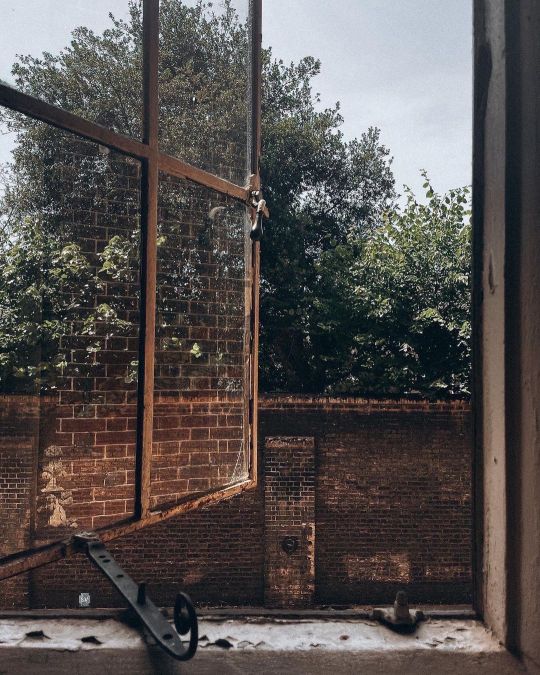
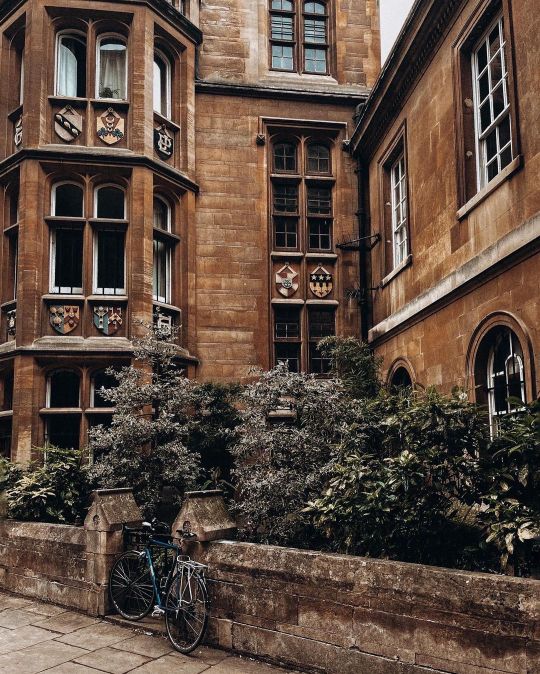

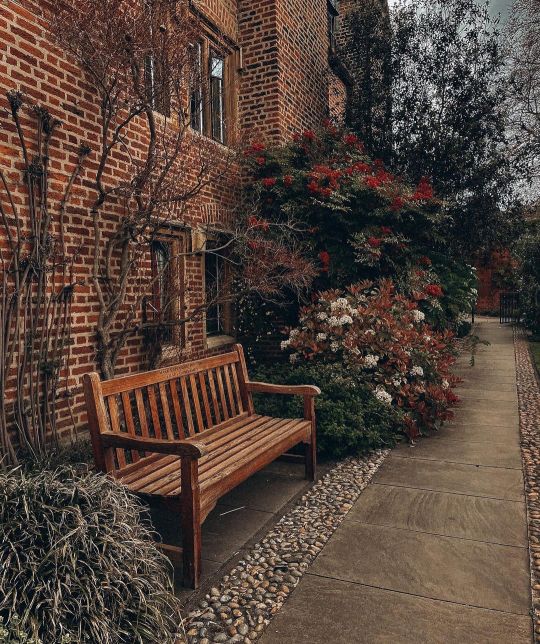
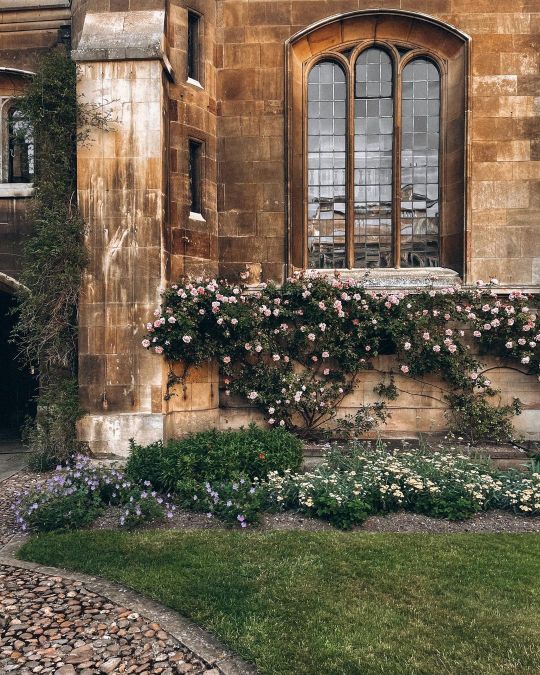
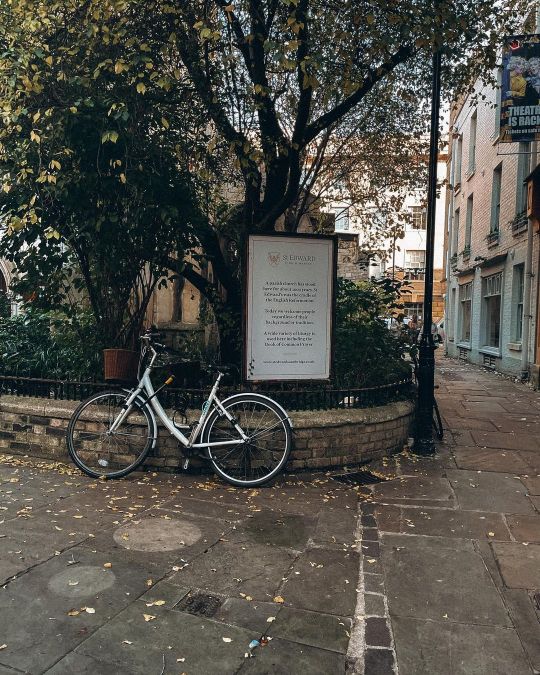
Instagram credit: fieldnotesbyfi
#gonville & caius college#cambridgeshire#cambridge#england#uk#united kingdom#streets#street#green#nature vibes#nature#autumn colors#autumn#fall aesthetic#fall#flowers#flower
6K notes
·
View notes
Text
Half The World Away
I've been walking for a week.
I got the bus to Glasgow and walked back home along the West Highland Way (about 96 miles). I tried this last year, but about five days in I felt my foot Slide Away and my knee gave up the ghost so we had to abandon.
This meant there was some unfinished business and we put together The Masterplan to come back and best our (mostly my) demons.
All of which is to say that I have been largely off the internet for the past seven days, and it seems like a lot has happened in my absence.

And Oasis reformed, after a decade and a half of the Gallagher brothers insisting that they hated each other and would never reform. Some Might Say that it's a cynical money-grab, fuelled by a £20m divorce settlement (looks like someone is no longer Married With Children), and they'd probably be right.
They're going to make a boatload of cash from these shows.
Especially given the fact that some of the tickets, thanks to Ticketmaster's ingenious dynamic pricing system, sold for nearly £500 to people who had been in an online queue for hours, expecting to pay just north of £100. It's greedy and callous, but Don't Look Back In Anger, because they're Rock'n'Roll Stars, so surely it'll be worth it.
But will it?
Would it even have been worth it at £115?
Could anything ever live up to the hype of this musical Lazarus?
Or will it be a half-assed schlep around stadiums full of bandwaggoners and the old faithful, coming together in a futile attempt recreate a moment already lost to time?
A doomed attempt to bottle nostalgia and inhale it with cocaine and Instagram stories. D'you Know What I Mean? (sidenote, I just listened to this track, and realised it used to scare the shit out of me as a kid - the helicopters at the start are freaky, man. So that was a fun little blast down memory lane)
Another thing I missed this week was episode 3 of University Challenge, so Don't Go Away, we'll get to that now.
Listen Up, here's your first starter for ten.

This match saw Gonville and Caius, Cambridge facing Bristol - if you want to watch the episode before reading the review you can do so here.
G&C, Rajan tells us, have reached the quarter-finals on 8 of their 11 appearances, which is an incredible ratio. They won in 2015, thanks to the monumental Grand Final performance of Ted Loveday (Mr Hapax Legomenon, in case the name doesn't ring any bells).
Bristol were runners-up in 2023, their best ever result, with their previous peak seven quarter-finals in the Paxman era.
Subscribe to the UC Review
Both sides have bears for mascots, but only the Bristol bear is wearing a top hat. It remains to be seen whether this matters.
Warner kicks things off for Bristol with Lise Meitner, and they follow this with a full set of bonuses on New York cities. Noble hit back for G&C who managed two bonuses of their own, before a second starter for Warner won a set on words starting with s-o-r-r.
Qureshi takes his first starter with theramin, an instrument that hasn't featured on an Oasis tracks, as far as I'm aware.

No one gets the music starter, which is bloody typical when I've spent the whole time mucking around talking about music, but Watts wins Bristol the bonuses with aufbau on the replacement starter - She's Electric.
I can't quite believe how well that She's Electric line just worked. I hope that people haven't stopped reading because of all the Oasis puns because this one makes it all worth it. And it fell onto my lap, completely unexpectedly. The Shock of the Lightning, as it were (which is apparently another of their singles. This keeps getting better and better).
Bristol are well into the 200s now, but G&C Soldier On, although all Noble can manage is to lose five points with an incorrect interruption. G&C scored 305 in the opening match of their 2015 title run, and it looks as though they are going to be on the receiving end of a triple century here, but Bentham finally stops the rot and brings up a consolatory 50 for the Cambridge side, who are Going Nowhere.

Watts (She's Electric. Yeah, I'm using it again, Whatever) brings Bristol closer to 300, and Warner takes them over it - what a performance from this quartet (as one Oasis fan may say to another at Wembley next year).
The gong sounds (I'm Outta Time). Gonville and Caius are put out of their misery, and Bristol celebrate with a Champagne Supernova (probably, I'm not really sure what that is).G&C 80 - 325 Bristol
So I just looked Champagne Supernova up, and its actually very helpful for explaining the indifference of these working class lads towards the ordinary people they're fleecing.
It's about when you're young and you see people in groups and you think about what they did for you and they did nothing. As a kid, you always believed the Sex Pistols were going to conquer the world and kill everybody in the process. Bands like the Clash just petered out. Punk rock was supposed to be the revolution but what did it do? Fuck all. The Manchester thing was going to be the greatest movement on earth but it was fuck all. When we started, we decided we weren't going to do anything for anybody, we just thought we'd leave a bunch of great songs.
We weren't going to do anything for anybody, we just thought we'd leave a bunch of great songs.
It's been there from the start - so in a way they've not betrayed any of their principles, because they decided not to have any.
So congrats to Bristol on a monstrous victory, and commiserations to G&C for having fallen victim to such a monstrous victory.
As for me, I've finished my big hike back from Glasgow, but I'm still going, slowly walking down the hall, faster than a cannonball.
PS - I did try to fit Wonderwall in, but its an entirely made up word so I struggled, and I'm chuffed enough with the She's Electric bit that I feel alright about it. Shakermaker proved too difficult, too. If I'd managed Bonehead's Bank Holiday I'd have deserved the Pulitzer.
2 notes
·
View notes